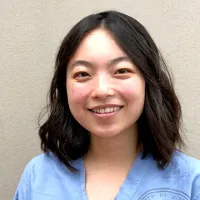
Diagnostic Method Goes Viral
Have you ever gone to the doctor’s and been wrongly diagnosed? Much like many of us, Charlie Yeh, UCSF-UC Berkeley bioengineering alumnus and founder and CEO of mFluiDx, certainly has.
After completing his graduate thesis on point of care microfluidic diagnostics and obtaining funding from the Gates Foundation, Yeh created his startup, mFluiDx, which aims to develop low cost, automated point of care DNA diagnostic assay for primary care outpatient clinics.
Last month, Yeh presented this pitch at the Global Corporate Venturing and Innovation Summit and became an early-finalist of the UC Entrepreneur Pitch Competition.
“To me, my passion is not a drive for publishing,” Yeh said. “I always wanted to work on something where the science could be directly applied to someone else. Startups are about execution, translating the science into people’s hands, and that’s what really excites me.”
After interviewing more than 200 people across six US states and four countries and stationing himself in various clinics to observe their day-to-day workflow, Yeh identified the current practice of diagnosing patients solely by observing symptoms as a problem in need of a solution.
Yeh said that observing common symptoms and using paper-strip antibody tests have low sensitivity and specificity, leading to poor accuracy.
Molecular DNA tests using polymerase chain reaction, or PCR, technology, which is highly sensitive and accurate, are not readily available at outpatient clinics because of the high cost of machines and lack of automation, leading to long turnaround times to see results.
Thus, Yeh has attempted to commercialize a novel product called Simple chip technology, which detects viral and bacterial diseases in 15 minutes.
Simple chip utilizes a simple design, simple manufacturing, and simple reading process to make the technology low-cost.
“I was on the road for a couple months, really digging this through,” Yeh told Synapse in an interview on Feb. 26. “I’ve seen the expressions of people wanting (this technology), so I know directly that this is a problem that should be solved.”
The mFluiDx founder said he and his team have tried to shrink a PCR machine into a chip, making it fully automated but at 100 times lower the cost. Providers can drop a bio sample onto the microfluidic chip, which incorporates Simple chip technology, put it through a reader, and use a mobile app to read out analytical validation for target diseases.
This streamlines the process, so no third-parties need to be involved, and patients do not have to wait days for their results.
“With the app integrated, we’re a data as well as a diagnostic company,” Yeh said. “We can collect data on transmission rates, forecast where a certain pathogen is spreading, and identify hotspots. This becomes useful for responders to plan the next step.”
Yeh added that with the Simple chip technology, his team has developed the world’s fastest molecular assay, with the same sensitivity and specificity compared to quantitative PCR, but 20 times faster.
“We are not secretive about our technology,” Yeh said. “A lot of our stuff is published and peer-reviewed, and we’ve gone about a transparent way of doing things than others in the industry who did not follow this protocol.”
Yeh has published the technology in peer-reviewed journals, published patents, and received NIH and NSF grants, all of which incorporate external review by experts in the field.
As a graduate student in the UCSF-UC Berkeley bioengineering program studying under Luke Lee, Yeh said he saw there was a huge potential for microfluidics to move into the life sciences, particularly in point of care diagnostics.
He added that now, the molecular diagnostic market for infectious disease has a fast compound annual growth rate. Despite the large market, however, molecular diagnostics is mostly only deployed in centralized hospitals, specialized labs, or physicians offices that have high complexity labs on site.
“There’s almost no deployment of this kind of point of care in pharmacies or general physicians offices,” Yeh said. “There’s about 100,000 outpatient clinic settings and pharmacies combined here that’s completely untapped.”
Despite the circumstances, Yeh said the technology is entirely dependent on funding to move forward, which is why he and his team are currently looking for angel investors and strategic mentors.



